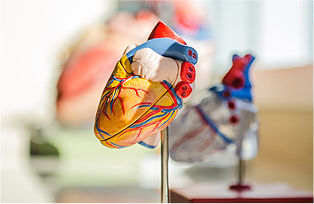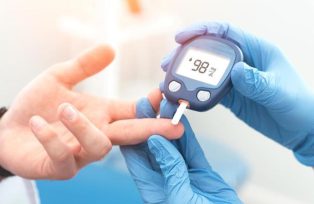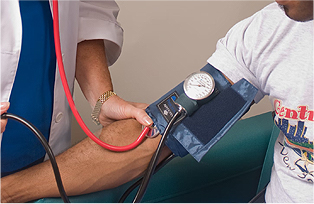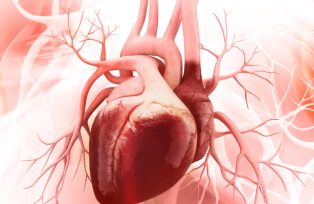CHOLESTEROL

Cholesterol is a constituent of the membranes that surround cells. It is essential for the production of hormones produced by the genital and adrenal glands. Cholesterol regulation depends on genetic and lifestyle factors. When the level of bad cholessterol is too high, it becomes harmful to your health. The doctor will then suggest a diet and/or medication to lower this rate
Cholesterol isn’t always dreadful, but when you have too much cholesterol in your blood, it can cause severe health problems. The providers at Texas Health Providers in Dallas TX have good experience caring all ages patients who are dealing with choolesterol issues. To take the essential steps to control your choleesterol you can call our office today or book an appointment online with our health care provider.
CHOLESTEROL
What is cholesterol?
Cholesterol is a fat-like substance found in every cell in the body that is carried through the circulatory system, and it is necessary for the construction of cells, sex hormones or the synthesis of bile acids, the metabolism of vitamin D, and etc. A reduced amount of cholesterol may indicate possible diseases or cause depression. Most cholesterool is produced by the human body, and the rest comes from food of animal origin. Cholesterol does not dissolve in the blood, but combines with blood plasma proteins called lipoproteins.
What are the risks of high cholesterol?
An increase in the level of bad cholesterol and a decrease in good cholessterol in human blood is one of the main risk factors affecting the occurrence of cardiovascular diseases. With an increase in the concentration of LDL in the blood, the body’s ability to metabolize its excess is disrupted, as a result of which this excess accumulates on the walls of the arteries, forming the so-called plaques develops, which damages the blood vessels that supply blood to the heart, brain, kidneys, lower limbs and small intestines. The most common consequence of this disease is myocardial infarction and cerebral stroke.
It is important that everyone has their cholesterol levels checked regularly. When an elevated level of cholessterol in the blood is detected, it is important to take timely measures to reduce it, and thus prevent the development of cardiovascular diseases. This increases your risk of severe health conditions, including:
- Brain stroke
- Heart attack
- Coronary heart disease
- Peripheral arterial disease
How to know your cholesterol level?
Causes and risk factors of high cholesterol
Food
Cholesterol is mainly produced in the liver from dietary fats. Cholesterols is not related to the amount of fat ingested, but to its quality. The fats in the diet are made up of fatty acids which are of three types:
Saturated fatty acids
In food, the “bad” cholesterol is found only in animal products rich in saturated fatty acids. There is none in fruits, vegetables, and vegetable oils, and fish contain very little. The main sources of cholesteerol are eggs, whole milk, liver and heart, cold cuts and meat, especially red meat such as beef and mutton. Cholesterol is invisible in meat, and you will find 95% of the cholesteerol is in the red meat.
Monounsaturated fatty acids
They are neutral, and it is for example peanut oil, and olive oil.
Polyunsaturated fatty acids
They are protective and are found in certain vegetable fats such as corn, soybean, sunflower, rapeseed, walnut oils and fish oils. They are not involved in the synthesis of cholesterol. They increase the rate of HDL useful for the elimination of cholestarol.
How is cholesterol diagnosed and managed?
Diagnostic
High cholesterol levels are often detected during routine blood tests. These tests usually measure your total cholesterol level as well as LDL and HDL cholesteerol levels. Depending on your risk factors, the age at which you will be recommended to start these tests may vary. In Dallas TX, people with no risk factors will start getting screened at around age 40.
As part of this screening process, doctors from Texas Health Providers will perform a physical examination and then ask you questions about your diet and personal and family medical history. Our doctor will check for other risk factors that predispose you to heart or blood vessel disease.
Treatment and Prevention
By getting our treatment to lower cholesterol levels, you will decrease the risk of coronary heart disease, heart attack, stroke and many other disorders. A healthy lifestyle is still the best defense against high cholesterol. It is a way to arm yourself against other risk factors that may increase your risk of developing a disease affecting the heart or blood vessels. The following suggestions may guide your first steps towards initiating treatment for high cholesterol:
- Eat a diet low in saturated fat and cholesterol
- Eat a wide range of vegetables, whole grains, fruits, nuts, and seeds
- Eat a healthy diet
- Increase your level of physical activity
- Maintain a healthy weight
- Limit your alcohol consumption
If you quit smoking and prevent your blood pressure from rising, you can lower your risk of angina pectoris, heart attack and stroke.
People who are at high risk of developing heart or blood vessel disease should begin drug treatment immediately and follow the suggestions for lifestyle changes. Those at moderate or low risk should make lifestyle changes first. Medication could be added if the target cholesterol levels are not reached after a few months or if additional risk factors are observed.
Some people think there’s no point in changing their habits if they’ve already had a heart attack or stroke, but that’s not true. Lowering your cholesterol is vitally important to prevent this from happening again.
Today, people with heart disease or blood vessel disease are on therapy even though their cholesterol levels are within a normal range. Your body is constantly producing cholesterol, so you need to take your medication and make any lifestyle changes your doctor from our Texas Health Providers suggests preventing your blood cholesteerol from rising.












